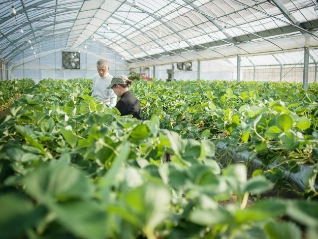
Het laatste nieuws en persberichten

Bekijk onze rapporten

Lees testimonials van onze klanten
Nederlandse bedrijven presteren redelijk goed, maar de neerwaartse risico's zijn groot


Nieuwe Amerikaanse tarieven en herziening vrijhandelsverdrag Verenigde Staten, Mexico en Canada vergroten betalingsrisico’s

The Shanghai Cooperation Organisation presented an alternative political economic vision for the world, but underlying...

The President promised the return of millions of factory jobs, but rising investment pledges masks a mixed picture for US...

Een eeuw lang risicobeheer, kennisopbouw en vertrouwen

Nauwere banden kunnen de handel stimuleren en een werkbaar alternatief vormen voor de gebrekkige WTO. Maar kan...

Hoewel het akkoord voor opluchting zorgt, laten onuitgewerkte details en...
Kijken op 7 van 68
Chemicals production growth projected to slow in 2025/2026 due to US tariffs


Trade tensions trigger higher insolvencies

US business response to shifting trade policies

Our survey of companies across Canada, Mexico and the US reveals that while trade credit use is expanding, businesses remain...

Looking for safe havens in a divided region

Tariffs and related uncertainty causing a large negative impact

In some markets the indirect impact of tariffs could dampen higher food spending
Kijken op 7 van 164
After adopting Atradius trade credit insurance, MBS found that their credit control processes improved so much that staff had more time to devote to clients.
Lacto chose Atradius over all other trade credit insurance companies, due to the responsiveness of their Account Manager and the quality of communication.
Australian startup Ayonz partnered with us to build a robust risk management platform, enabling them to focus on their core business and enjoy growth.
After some experiences of bad debt, Vero Design describes how we provide them with peace of mind, allowing them to focus on fireplace production and sales.
Inheriting Atradius credit insurance after an acquisition enabled E.ON to benefit from our dedicated solution for multinationals.
French lighting designer, Corep, uses credit insurance to maximise opportunities for growth and enable favourable factoring terms to secure cash flow.
Understanding the unique challenges Covid-19 brought to the healthcare industry, Atradius supported Philips Capital’s sector financing solutions.
Kijken op 7 van 19
































